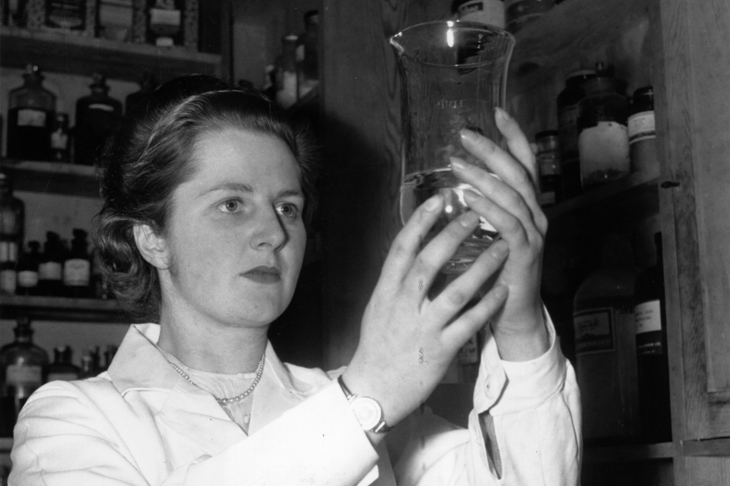Everyone knows the real reason people like Donald Trump are sceptical of climate change is that conservatives are fundamentally anti-science. Some doubt science because it conflicts with their religious beliefs; others because its implications might mean radically shifting the global economy in an anti-growth or heavily statist direction, which goes against their free-market ideology; others because, being conservative, they are prisoners of their dogmatism, need closure and fear uncertainty. I hear this all the time from lefties on social media. And there seems to be some evidence to support it.
At least there is if you believe studies like The Republican War on Science (Mooney, 2005), Politicization of Science in the Public Sphere (Gauchat, 2012), and ‘Not for all the tea in China!’ Political Ideology and the Avoidance of Dissonance-Arousing Situations (Nam et al, 2013).
But there’s a wrinkle here and you may have guessed what it is. The world of social science is overwhelmingly left-wing: so heavily agenda-driven, so rife with confirmation bias and skewed methodology that almost inevitably its studies will show conservatives as blinkered and dim, and lefties as open-minded and clever regardless of the evidence.
Lest you think this is my own bias showing, another recent study confirmed it: a survey of 479 sociology professors found that only 4 per cent identified as conservative or libertarian, while 83 per cent identified as liberal or left-radical. In another survey — of psychologists this time — only 6 per cent identified as ‘conservative overall’.
Just occasionally, though, a more balanced study does slip through the net — like the one just published by a team from Oxford University. The study by Nathan Cofnas et al — Does Activism in the Social Sciences Explain Conservatives’ Distrust of Scientists? — pours scorn on the idea that conservatives are any more anti-science than lefties. It’s not science they distrust so much as scientists — especially ones in more nebulous, activism-driven fields like ecology or sociology. As Cofnas told Campus Reform, a site that exposes left-wing bias at universities: ‘Conservatives are right to be sceptical. Take any politicised issue that is connected to some disagreement about scientific fact. I do not believe there is a single case in the last couple of decades where a major scientific organisation took a position that went against the platform of the Democratic party.’ He added: ‘What an odd coincidence that “science” always, without exception, supports the liberal worldview.’
Wait, though. While Margaret Thatcher said the ‘facts of life are conservative’, how can we be sure that the facts of science don’t naturally swing left? This is what left-wing scientists seem to believe. But as Cofnas shows, in order to reach that conclusion, they have to torture the data till it screams. Or even just make it up.
In 2014, a paper was published in Science called ‘When contact changes minds: An experiment on transmission of support for gay equality’. This demonstrated that instinctively homophobic, buttoned-up conservatives were more likely to become liberal on meeting a gay man. Their study showed that ‘a 20-minute conversation with a gay canvasser’ increased their acceptance of same-sex marriage nine months later. Great! Except as two graduate students subsequently demonstrated, no study was ever conducted. To the chagrin of the social scientists who had welcomed this paper and its heartwarming message, it had to be retracted.
Where are the peer-reviewers who are supposed to vet these things? Well, it turns out they’re generally willing to give a free pass to any thesis that accords with the liberal narrative. For example, over the course of more than a decade, Diederik Stapel ‘published dozens of sensational papers on such topics as how easily Whites or men can be prompted to discriminate against Blacks or women’. When exposed as a fraud, Stapel explained that he was merely giving social scientists what they were ‘waiting for’.
Stapel probably had a point. If research supports a liberal shibboleth — say, the notion that violence is a learned behaviour rather than innate — then it will be given huge prominence. In 2000, the American Academy of Pediatrics testified to Congress that ‘more than 3,500’ studies had investigated the link between exposure to media violence and actual violent behaviour. This was a lie. Even those few studies — fewer than 1,000 — that purported to find a causal link often did so on the flimsiest of evidence. For example, one established the elevated ‘aggression’ caused by watching an exciting film by asking a child ‘whether he would pop a balloon if one were present’.
If the evidence doesn’t accord with the correct ‘woke’ narrative then right-thinking social scientists tailor it till it does. This is what happened to a 2007 study showing racially diverse communities are more suspicious, withdrawn, ungenerous, fractured and fractious. Such an incendiary refutation of the well-known truth that ‘diversity is strength’ could not go unedited. So it didn’t. Publication was delayed until the author could ‘develop proposals to compensate for the negative effects of diversity’. To publish the facts on their own would be ‘irresponsible’.
Eventually, the author published it with a disquisition on how increasing diversity would lead to ‘significant benefits in the medium or long term’. This accords with ‘contact theory’ — a notion popular among social scientists (see also the imaginary encounter with the gay canvasser, above) that the more we’re physically exposed to diversity the more we’ll learn to love it. And if the hard evidence speaks otherwise, well never mind. You can just do what the author of that diversity report does: every time some unhelpful conservative type cites it to back up their argument that diversity causes social problems, he accuses them of selectively citing his findings because they’ve ignored the bit at the end where he explains that diversity will be good one day.


















